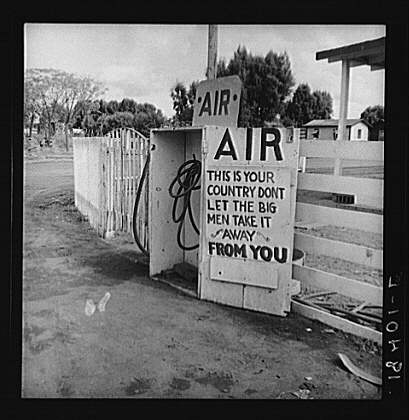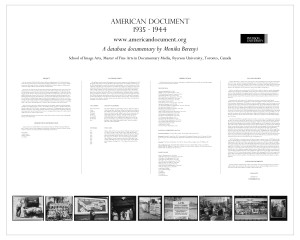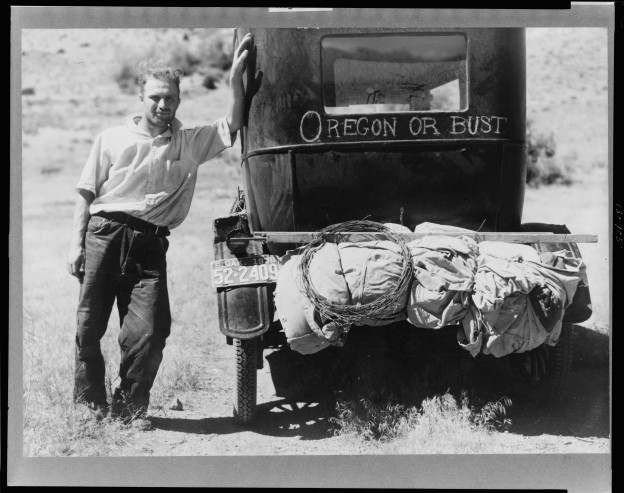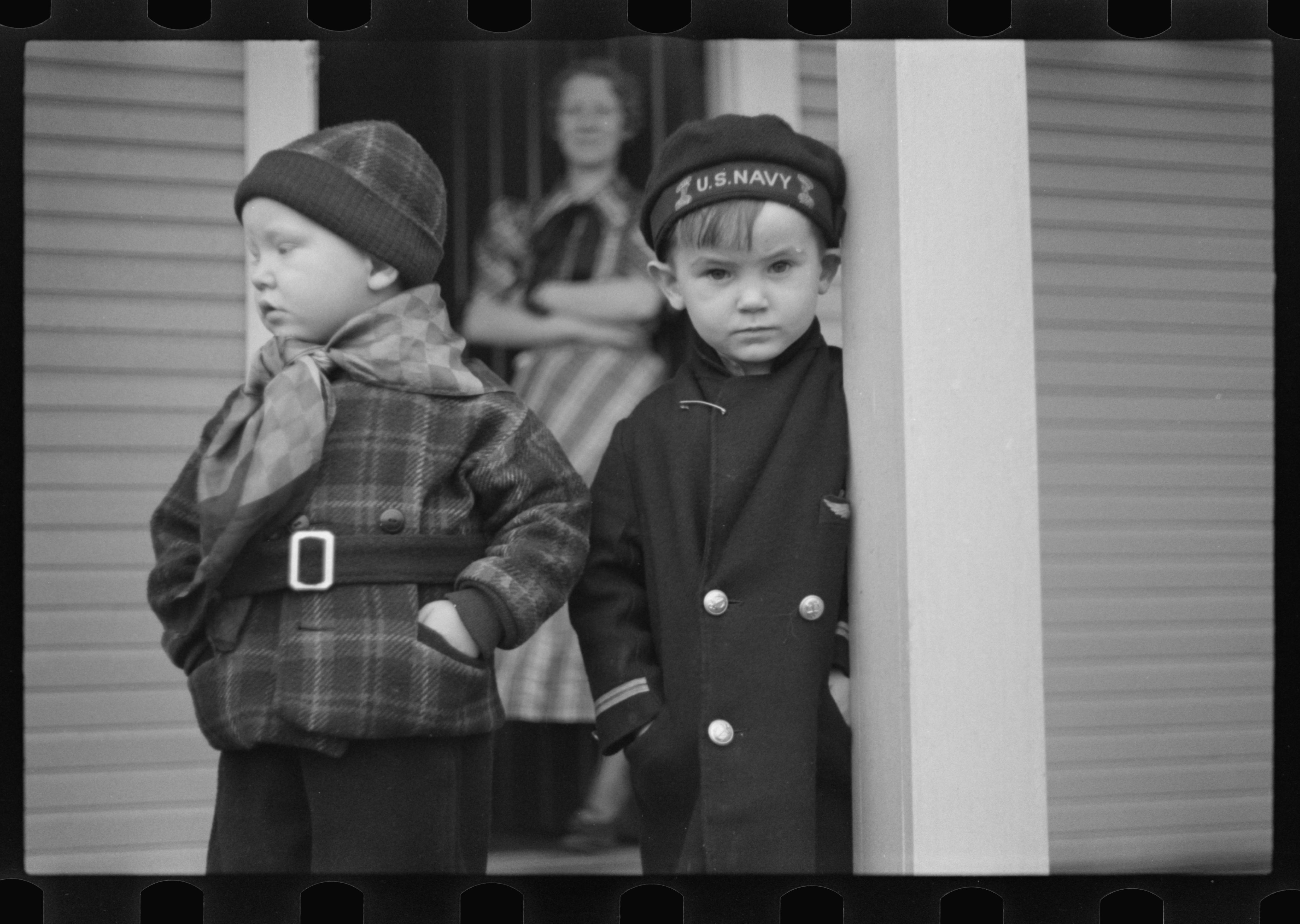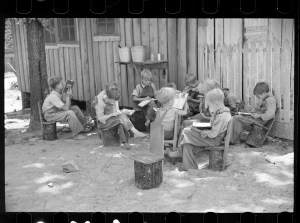The indictment of Franklin Delano Roosevelt is an extract from a revisionist documentary work, created in the form of an artist’s book (What We Are About to Receive: Historical Voices from the US Farm Security Administration Archival File), that functions as a platform for (re)evaluating the mythological ethos of Franklin Delano Roosevelt’s New Deal era economic policies. The critical work deconstructs existing perceptions of history through the subversive juxtaposition of primary source documents, images from the FSA-OWI photographic collection, and newly constructed oral histories.
Today’s Date
During the time of the Great Depression, it is charged that the President willfully declared war on the people of the land in an effort to eliminate individualism, and to permanently buttress intrusive and costly government.
It is charged that the President acted without authority from the Constitution when he closed the banks on March 6, 1933. He understands now that there are people out there who would rather die than have their lives saved in an unorthodox way.
The President is charged with having violated the Democratic platform which promised a sound currency. The President politically mediated breach of contracts as to both paper currency and debts: terminating the domestic redemption of all currency in gold; and outlawing and repudiating all private and public contracts and other debts that required payment in gold. In and of itself, the aforementioned remains the largest singular political fraud in American history.
It is charged that the President supervised the Federal Reserve’s mismanagement of the money supply.
It is charged that the President not only violated the liberties of businessmen and farmers, but also those of future generations who never had the chance to officially agree to the terms of the New Deal.
It is charged that the immemorial liberties of a free press have been subject to irreparable harm.
It is charged that the President suppressed the organic flow of generally accepted standards of fair competition, and thus, misrepresented goods, services, and job opportunities to the people of the land.
It is charged that the President regimented the entire labor force into increased labor, increased wages, and increased public improvements at the cost of freedom.
It is charged that the President has taught the people of the land to think of the government as a benevolent institution designed to protect them,and to help them make money, and to think of independently minded individuals as soulless opportunists and machines that have no interest in the common people except to make money out of them.
It is charged that the President has put the government into business, into what is called “competition with private business”. It is charged that the President pushed the government into the private business of making unsecured loans to the people of the land, at a cost of billions of dollars, placing exorbitant strains on the national credit system.
It is charged that the President failed to comprehend the reasons why the loans were never repaid.
It is charged that the President regimented and violated agricultural production by interfering with the inalienable rights of farmers and sharecroppers. The President, through various alphabet agencies such as the FCA, RA and FSA, proffered irresistible forms of friendship, programs, loans, aid, and benefits. The aforementioned were systematically delivered by Washington bureaucrats who operated through local committees, and farmers and sharecroppers were ensnared by what appeared to be attractive forms of self-government. Thenceforth, the people of the land have been tied.
It is charged that between 1933-1945, the President prolonged an unnecessary state of fear in the minds and hearts of the people of the land.
How does the defendant plead?
Signed,
The People of the Land,
The People in the FSA-OWI Archival File
